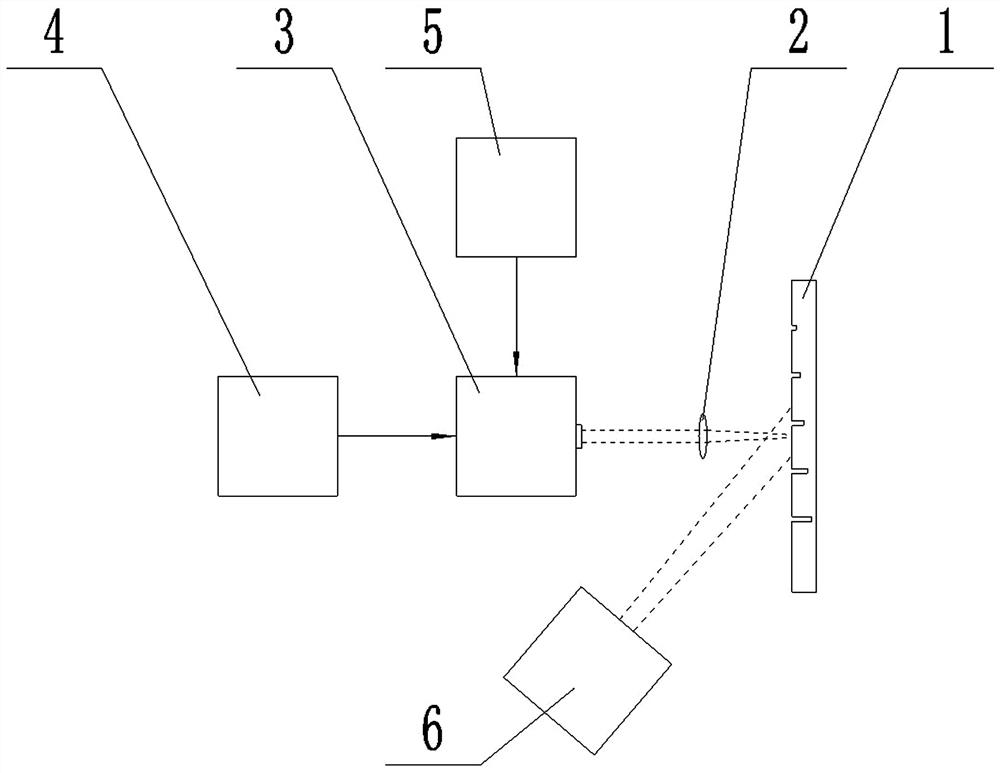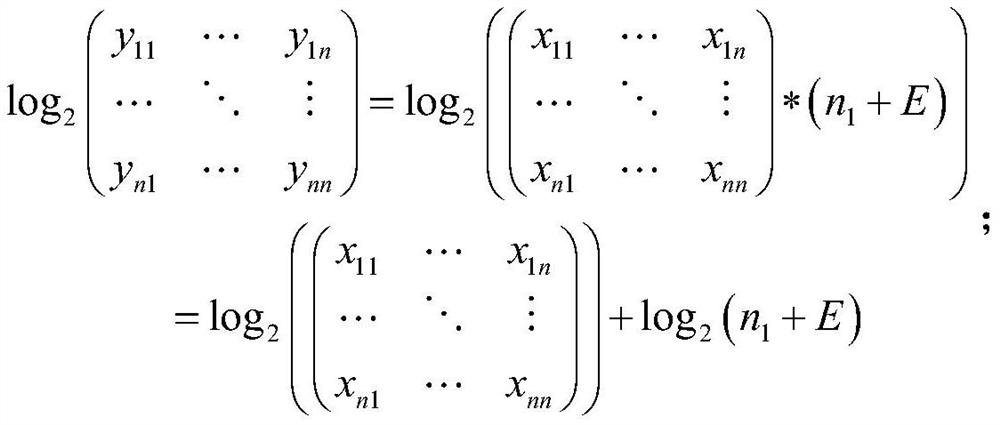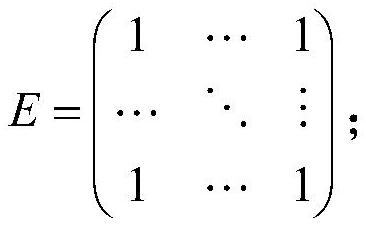Metal microcrack three-dimensional characterization system and method based on reflection type laser thermal imaging
A micro-crack and thermal imaging technology, which is applied in image detector methods, image signal processing, radiation pyrometry, image enhancement, etc., can solve the problem of incomplete characterization results and achieve comprehensive characterization results
- Summary
- Abstract
- Description
- Claims
- Application Information
AI Technical Summary
Problems solved by technology
Method used
Image
Examples
Embodiment Construction
[0038] A three-dimensional characterization system for metal microcracks based on reflective laser thermal imaging, including a metal workpiece under test 1, a Fourier lens 2, a semiconductor laser 3, a computer 4, a signal generator 5, and an infrared thermal imager 6; among them, the semiconductor laser 3 The outgoing end of the Fourier lens is facing the incident end of the Fourier lens 2; the outgoing end of the Fourier lens 2 is facing the front of the measured metal workpiece 1; the signal output end of the computer 4 and the signal output end of the signal generator 5 are all connected to the semiconductor laser 3 The signal input terminal is connected; the detection terminal of the infrared thermal imager 6 is inclined to the front of the metal workpiece 1 to be tested.
[0039] A three-dimensional characterization method for metal microcracks based on reflective laser thermal imaging (this method is realized based on the three-dimensional characterization system for me...
PUM
 Login to View More
Login to View More Abstract
Description
Claims
Application Information
 Login to View More
Login to View More - R&D
- Intellectual Property
- Life Sciences
- Materials
- Tech Scout
- Unparalleled Data Quality
- Higher Quality Content
- 60% Fewer Hallucinations
Browse by: Latest US Patents, China's latest patents, Technical Efficacy Thesaurus, Application Domain, Technology Topic, Popular Technical Reports.
© 2025 PatSnap. All rights reserved.Legal|Privacy policy|Modern Slavery Act Transparency Statement|Sitemap|About US| Contact US: help@patsnap.com



